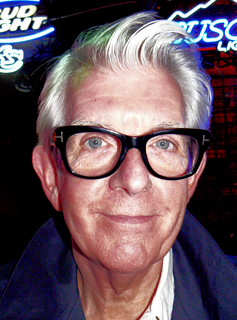A Quote by Joel Edgerton
Sometimes, what's not said is just as important to the writing as what is said. As a writer, we have our voices heard. I think that, at oftentimes, the ability to allow the dialogue to recede properly into the world of the film is also a really valid sort of way to be a writer, I think.
Related Quotes
And as Craig Brown - he's an English humorist, not a comedian but he's just a writer and humorist - I'm quite a fan of. I heard him talking in a rather similar way on the radio. He said I'm the sort of person - I can't remember exactly what he said, but it was rather interesting - he said I'm the sort of person that can be reduced to tears in an empty church and feel like I'm the CEO of the Devil's organization in a full one, and I tend to feel like that as well. I love empty churches and going into them looking around, but I'm not a churchgoer at all.
Writer-directors are a little bit more liberal, rather than having just the writer on the set, because I think sometimes the writer becomes too precious with the words. If you're a writer-director, you can see what you're doing and see your work in action, so I think you can correct it right there and still not compromise yourself.
It was only after two years' work that it occurred to me that I was a writer. I had no particular expectation that the novel would ever be published, because it was sort of a mess. It was only when I found myself writing things I didn't realise I knew that I said, 'I'm a writer now.' The novel had become an incentive to deeper thinking. That's really what writing is—an intense form of thought.
Good writing, and this is especially important in a subject such as economics, must also involve the reader in the matter at hand. It is not enough to explain. The images that are in the mind of the writer must be made to reappear in the mind of the reader, and it is the absence of this ability that causes much economic writing to be condemned, quite properly, as abstract.
The nightmare of censorship has always cast a shadow over my thoughts. Both under the previous state and under the Islamic state, I have said again and again that, when there is an apparatus for censorship that filters all writing, an apparatus comes into being in every writer's mind that says: "Don't write this, they won't allow it to be published." But the true writer must ignore these murmurings. The true writer must write. In the end, it will be published one day, on the condition that the writer writes the truth and does not dissemble.
I'm not a man who constantly thinks up jokes. But I think it's very important to be able to see the funny side of life and its joyful dimension and not to take everything too tragically. I'd also say it's necessary for my ministry. A writer once said that angels can fly because they don't take themselves too seriously. Maybe we could also fly a bit if we didn't think we were so important.
In the greatest fiction, the writer's moral sense coincides with his dramatic sense, and I see no way for it to do this unless his moral judgement is part of the very act of seeing, and he is free to use it. I have heard it said that belief in Christian dogma is a hindrance to the writer, but I myself have found nothing further from the truth. Actually, it frees the storyteller to observe. It is not a set of rules which fixes what he sees in the world. It affects his writing primarily by guaranteeing his respect for mystery.
I would also argue that there is a good chance that an outline will help you stave off any onslaught of writer's block. Let me advise you right up front that I am not a big believer in writer's block. I think writer's block is God's way of telling you one of two things - that you failed to think your material through sufficiently before you started writing, or that you need a day or two off with your family and friends.




































